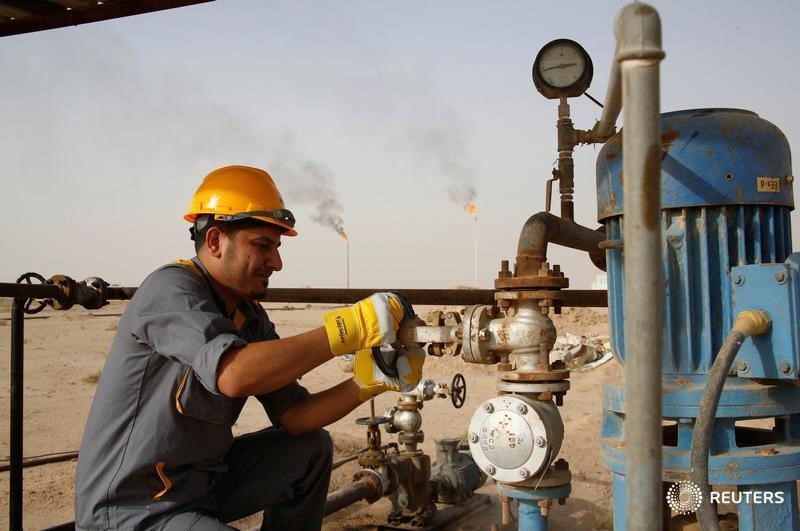By Peter Nurse
Investing.com -- Oil prices soared Friday, extending the recent rally in a volatile session on growing fears of a disruption to global energy supplies after Russian troops bombarded and captured Europe’s largest nuclear power station.
By 9:05 AM ET (1405 GMT), U.S. crude futures traded 3.6% higher at $111.51 a barrel, while the Brent contract rose 3.5% to $114.28. Benchmark Brent crude broke above the $100 last week for the first time since 2014 and hit $119.84 on Thursday
U.S. Gasoline RBOB Futures were up 3.5% at $3.4001 a gallon.
The news that Russian forces had attacked and captured the Zaporizhzhia power plant in Enerhodar, Ukraine, causing a fire in the complex, resulted in volatile trading Friday.
“The initial reports of a potential mishap sent shivers through global markets, setting off a flight to safety with traders liquidating stocks and euro-denominated assets to load their portfolios with bonds, gold, and crude oil,” said traders at XM Group. Some of the gains “were unwound once it became clear that catastrophe had been averted.”
That said, the overall tone within the market remains very positive on fears that Western sanctions over the Ukraine conflict will disrupt shipments from Russia, the world's biggest exporter of crude and oil products combined.
While the sanctions levied by the United States and allies don’t explicitly target Russia's daily exports of 4-5 million barrels, they have severely hampered its ability to sell its crude with customers wary of becoming entangled.
Oil prices are set to post their strongest weekly gain since the middle of 2020, with WTI up 21% and Brent up 16% after hitting their highest levels in a decade this week.
And further gains look likely.
The number of U.S. crude options contracts jumped to more than 240,000 in the first two days in March, according to exchange data, around double the levels seen earlier in the year. The interest has been strongest in call options, with investors betting on WTI prices rising in the coming weeks and months.
A Reuters poll of analysts indicated that Brent crude would average around $91.15 a barrel this year, above January's $79.16 consensus, while WTI was seen averaging $87.68, up from $76.23 in January.
The one caveat to these bullish predictions, assuming a Russia-Ukraine ceasefire is not occurring any time soon, is the potential revival of the Iran nuclear deal.
If the Western powers and Iran could come to an agreement, sanctions on the Persian Gulf country’s oil exports could be lifted, potentially releasing more than a million barrels a day of oil, or about 1% of global supply, back to the market.
